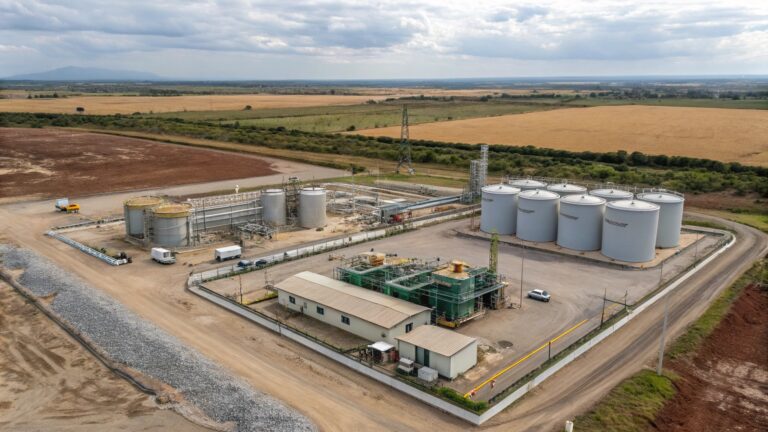In today’s fast-paced world, the manufacturing industry is undergoing a significant transformation, driven by technological advancements and the need for increased efficiency. The integration of innovative solutions, such as those offered by ServiceNow, is revolutionizing how manufacturers operate. By leveraging automation, data analytics, and cloud-based platforms, manufacturers can streamline their processes, reduce costs, and enhance productivity. This article will delve into the various aspects of manufacturing, focusing on how ServiceNow’s solutions can help businesses thrive in this competitive landscape.
We will explore the benefits of adopting these technologies, the challenges faced by manufacturers, and the future trends shaping the industry. With a comprehensive understanding of these elements, manufacturers can make informed decisions that will propel their businesses forward.
As we navigate through this article, we will emphasize the importance of ServiceNow in the manufacturing sector, highlighting its role in driving efficiency and innovation. By the end of this piece, readers will have a thorough understanding of how to leverage ServiceNow’s capabilities to enhance their manufacturing processes and stay ahead of the competition.
Understanding the Manufacturing Landscape
The manufacturing landscape is constantly evolving, influenced by various factors such as globalization, technological advancements, and changing consumer demands. To remain competitive, manufacturers must adapt to these changes and embrace new technologies that can enhance their operations.
One of the most significant trends in manufacturing is the shift towards Industry 4.0, which emphasizes the integration of digital technologies into manufacturing processes. This includes the use of the Internet of Things (IoT), artificial intelligence (AI), and big data analytics to optimize production and improve decision-making.
ServiceNow plays a crucial role in this transformation by providing a platform that enables manufacturers to connect their systems, automate processes, and gain real-time insights into their operations.
The Role of ServiceNow in Manufacturing
ServiceNow is a cloud-based platform that offers a range of solutions designed to improve operational efficiency and enhance collaboration within organizations. In the manufacturing sector, ServiceNow provides tools that help streamline processes, manage resources, and improve overall productivity.
By implementing ServiceNow, manufacturers can automate routine tasks, such as inventory management and order processing, allowing employees to focus on more strategic initiatives.
Additionally, the platform’s data analytics capabilities enable manufacturers to gain valuable insights into their operations, helping them identify areas for improvement and make data-driven decisions.
Benefits of Implementing ServiceNow in Manufacturing
The adoption of ServiceNow in manufacturing offers numerous benefits, including:
1. Increased Efficiency: By automating repetitive tasks and streamlining processes, manufacturers can significantly reduce operational costs and improve productivity.
2. Enhanced Collaboration: ServiceNow facilitates better communication and collaboration among teams, enabling them to work together more effectively and share information in real-time.
3. Improved Decision-Making: With access to real-time data and analytics, manufacturers can make informed decisions that drive growth and innovation.
4. Scalability: ServiceNow’s cloud-based platform allows manufacturers to scale their operations easily, adapting to changing market demands and business needs.
5. Better Resource Management: The platform helps manufacturers optimize their resource allocation, ensuring that they have the right tools and personnel in place to meet production goals.
Challenges Faced by Manufacturers
Despite the numerous benefits of adopting new technologies, manufacturers often face several challenges, including:
1. Resistance to Change: Employees may be hesitant to adopt new technologies, fearing that it will disrupt their workflows or lead to job losses.
2. Integration Issues: Many manufacturers rely on legacy systems that may not easily integrate with modern solutions like ServiceNow, making the transition more complex.
3. Data Security Concerns: As manufacturers increasingly rely on digital technologies, they must also address potential cybersecurity threats and ensure that their data is protected.
4. Skill Gaps: The rapid pace of technological change can create skill gaps within the workforce, requiring manufacturers to invest in training and development.
Future Trends in Manufacturing
As the manufacturing industry continues to evolve, several trends are expected to shape its future:
1. Increased Automation: The use of robotics and automation will continue to grow, allowing manufacturers to improve efficiency and reduce labor costs.
2. Sustainability Initiatives: Manufacturers will increasingly focus on sustainable practices, such as reducing waste and energy consumption, to meet consumer demands and regulatory requirements.
3. Data-Driven Decision Making: The use of big data analytics will become more prevalent, enabling manufacturers to make informed decisions based on real-time insights.
4. Customization and Personalization: As consumer preferences shift towards personalized products, manufacturers will need to adapt their processes to accommodate these demands.
5. Collaboration with Technology Partners: Manufacturers will increasingly collaborate with technology partners, such as ServiceNow, to leverage their expertise and drive innovation.
Case Studies: Successful Implementation of ServiceNow in Manufacturing
Several manufacturers have successfully implemented ServiceNow to enhance their operations. For example, a leading automotive manufacturer utilized ServiceNow to streamline its supply chain management processes. By automating inventory tracking and order processing, the company was able to reduce lead times and improve overall efficiency.
Another example is a consumer goods manufacturer that adopted ServiceNow to enhance its customer service operations. By integrating ServiceNow’s platform with its existing systems, the company improved response times and customer satisfaction, ultimately driving sales growth.
Best Practices for Implementing ServiceNow in Manufacturing
To ensure a successful implementation of ServiceNow in manufacturing, organizations should consider the following best practices:
1. Conduct a Needs Assessment: Before implementing ServiceNow, manufacturers should assess their current processes and identify areas for improvement.
2. Engage Stakeholders: Involve key stakeholders in the implementation process to ensure buy-in and support from all levels of the organization.
3. Invest in Training: Provide employees with the necessary training to ensure they are comfortable using the new platform and can maximize its benefits.
4. Monitor Progress: Regularly evaluate the implementation process and make adjustments as needed to ensure that the organization is achieving its goals.
5. Leverage Data Analytics: Utilize ServiceNow’s data analytics capabilities to gain insights into operations and make informed decisions.
Conclusion
The manufacturing industry is at a pivotal moment, with technological advancements and changing consumer demands driving the need for innovation and efficiency. ServiceNow offers a powerful platform that can help manufacturers navigate this landscape, providing tools to streamline processes, enhance collaboration, and improve decision-making. By embracing these technologies, manufacturers can position themselves for success in an increasingly competitive market.
As we have explored throughout this article, the benefits of implementing ServiceNow in manufacturing are numerous, from increased efficiency to better resource management. However, manufacturers must also be aware of the challenges they may face during this transition, such as resistance to change and integration issues. By understanding these challenges and adopting best practices for implementation, manufacturers can successfully leverage ServiceNow to enhance their operations.
In conclusion, the future of manufacturing lies in the ability to adapt and innovate. By embracing solutions like ServiceNow, manufacturers can not only improve their current processes but also position themselves for long-term success in a rapidly changing industry. For more information on how ServiceNow can transform your manufacturing operations, visit [ServiceNow Manufacturing Solutions](https://servicenowanimations.agdltd.com/manufacturing-2).
FAQs
1. What is ServiceNow and how does it benefit the manufacturing industry?
ServiceNow is a cloud-based platform that provides a range of solutions designed to improve operational efficiency and enhance collaboration within organizations. In the manufacturing industry, ServiceNow helps streamline processes, manage resources, and improve overall productivity. By automating routine tasks and providing real-time data analytics, manufacturers can make informed decisions that drive growth and innovation.
2. How can manufacturers overcome resistance to change when implementing new technologies?
To overcome resistance to change, manufacturers should engage employees early in the implementation process, providing them with information about the benefits of the new technology. Involving key stakeholders and offering training can help alleviate fears and build confidence in using the new system. Additionally, showcasing success stories and quick wins can demonstrate the value of the new technology.
3. What are the key challenges manufacturers face when adopting ServiceNow?
Manufacturers may face several challenges when adopting ServiceNow, including resistance to change, integration issues with legacy systems, data security concerns, and skill gaps within the workforce. Addressing these challenges requires careful planning, stakeholder engagement, and investment in training and development.
4. How does ServiceNow enhance collaboration within manufacturing teams?
ServiceNow enhances collaboration by providing a centralized platform for communication and information sharing. Teams can access real-time data, collaborate on projects, and streamline workflows, leading to improved efficiency and better decision-making. The platform’s integration capabilities also allow for seamless collaboration across different departments and systems.
5. What future trends should manufacturers be aware of in the industry?
Manufacturers should be aware of several future trends, including increased automation, sustainability initiatives, data-driven decision-making, customization and personalization, and collaboration with technology partners. Staying informed about these trends can help manufacturers adapt their strategies and remain competitive in the market.
6. Can ServiceNow be integrated with existing manufacturing systems?
Yes, ServiceNow can be integrated with existing manufacturing systems, although the complexity of integration may vary depending on the legacy systems in use. Manufacturers should work with IT professionals to assess their current systems and develop a plan for seamless integration to maximize the benefits of ServiceNow.
7. What best practices should manufacturers follow when implementing ServiceNow?
Manufacturers should follow several best practices when implementing ServiceNow, including conducting a needs assessment, engaging stakeholders, investing in training, monitoring progress, and leveraging data analytics. By adhering to these practices, manufacturers can ensure a successful implementation and maximize the benefits of the platform.
In conclusion, the manufacturing industry is undergoing a significant transformation, and embracing innovative solutions like ServiceNow is essential for success. By understanding the benefits, challenges, and best practices associated with implementing ServiceNow, manufacturers can position themselves for growth and efficiency in an ever-evolving landscape. For more insights and information, visit [ServiceNow Manufacturing Solutions](https://servicenowanimations.agdltd.com/manufacturing-2).






















+ There are no comments
Add yours